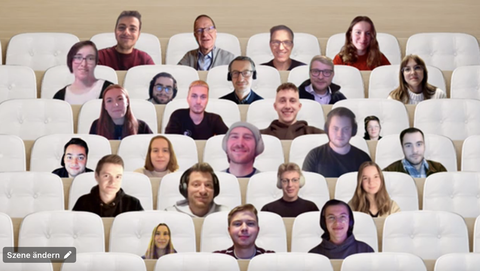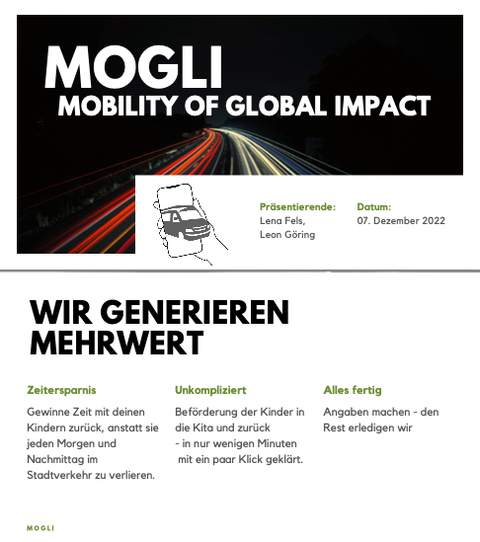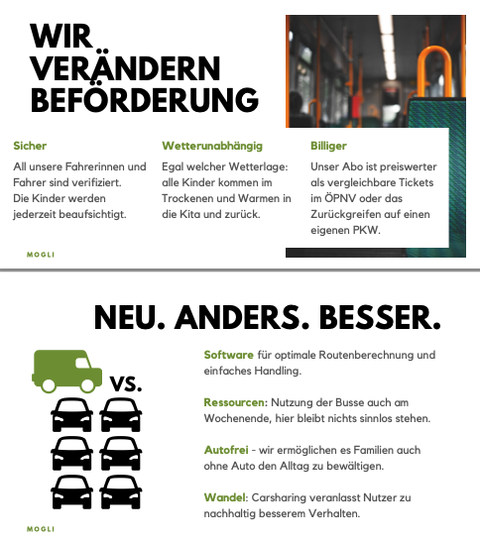Dec 20, 2022
Erfolgreicher Abschluss der Fallstudienarbeit im virtuellen Klassenraum – mit ukrainischer Beteiligung / Successful completion of case study work in the virtual classroom - with Ukrainian participation

Abschlussveranstaltung "Fallstudienarbeit im virtuellen Klassenraum"
-english version below-
Anschließend an die rund 20-jährige Geschichte der E-Learning-Angebote des Lehrstuhls für Wirtschaftsinformatik, insb. Informationsmanagement, fand im Wintersemester 2022/23 erneut eine Veranstaltung im Rahmen des Virtual Collaborative Learning Frameworks statt: Das Modul Fallstudienarbeit im virtuellen Klassenraum (FIVR) ist eine Kooperation des Lehrstuhls mit der Hochschule für Technik und Wirtschaft Dresden (HTW) und richtetet sich an Bachelor- und Diplomstudierende der beiden Hochschulen.
Ebenfalls geplant war die Einbindung von ukrainischen Studierenden der WUNU (West Ukrainian National University). Im Rahmen des vom DAAD geförderte Programms "Ukraine digital: Sicherung des akademischen Erfolgs in Zeiten der Krise" absolvierten ukrainische Professor:innen und Dozent:innen ein Trainingsprogramm zur digitalen Hochschullehre. Das Programm wurde durch das “Open Educational Resources for Collaborative Online & Distance Education and eXchange” (OER-Codex) Projekt initiiert, denn die ukrainischen Hochschulen stellen eine wichtige Stakeholdergruppe dar, welche von den Ergebnissen des OER-Codex Projekts profitieren kann. Vor diesem Hintergrund wurde die Teilnahme der ukrainischen Studierenden an der Veranstaltung FIVR ermöglicht, sowohl als stille Beobachter oder als aktive Gruppenmitglieder. Aufgrund der stark verschlechterten Situation war es leider nicht alle Studierenden möglich, die Fallstudienarbeit abzuschließen.

Eindrücke aus der Pitch Session
In virtuellen Kleingruppen erarbeiteten und entwarfen die Studierenden im Rahmen der Fallstudie ein eigenes Geschäftsmodell. Dabei übernahmen die Studierenden die Rolle eines Projektteams, welches die Ziele nach Klimaneutralität der Stadt Dresden im Bereich Elektromobilität unterstützen sollte. Begleitet wurden die Gruppen von qualifizierten E-Tutoren, welche den Studierenden als erste Ansprechpartner zur Verfügung standen, und von denen sie im Veranstaltungsverlauf Feedbacks zu ihrer virtuellen Kollaboration erhielten.

Eindrücke aus der Pitch Session 2
Nach drei intensiven Projektphasen und zwei Workshops fand die 8-wöchige Zusammenarbeit ihren erfolgreichen Abschluss in einem Pitch, welcher vor einem Experten-Panel präsentiert wurde. Wir freuen uns schon jetzt auf das nächste Wintersemester in dem wir das Modul wieder anbieten werden.
Englisch:
Following on from the 20-year history of e-learning courses offered by the Chair of Information Systems, in particular Information Management, another event was held in the winter semester of 2022/23 as part of the Virtual Collaborative Learning Framework: The module Case Study Work in the Virtual Classroom (FIVR) is a cooperation of the Chair with the Dresden University of Applied Sciences (HTW) and is aimed at Bachelor and Diploma students of both universities.
The involvement of Ukrainian students from the WUNU (West Ukrainian National University) was also planned. As part of the DAAD-funded programme "Ukraine digital: Ensuring academic success in times of crisis", Ukrainian professors and lecturers completed a training programme on digital university teaching. The programme was initiated by the Open Educational Resources for Collaborative Online & Distance Education and eXchange (OER-Codex) project, as Ukrainian higher education institutions represent an important stakeholder group that can benefit from the results of the OER-Codex project. With this in mind, the participation of Ukrainian students in the FIVR event was facilitated, both as silent observers or as active group members. Unfortunately, due to the severely deteriorated situation, not all students were able to complete the case study work.
In virtual small groups, the students developed and designed their own business model as part of the case study. In doing so, the students took on the role of a project team that was to support the goals of climate neutrality of the city of Dresden in the field of electromobility. The groups were accompanied by qualified e-tutors who were available to the students as initial contacts and from whom they received feedback on their virtual collaboration during the course of the event.
After three intensive project phases and two workshops, the 8-week collaboration came to a successful conclusion in a pitch, which was presented in front of a panel of experts. We are already looking forward to the next winter semester when we will offer the module again.
